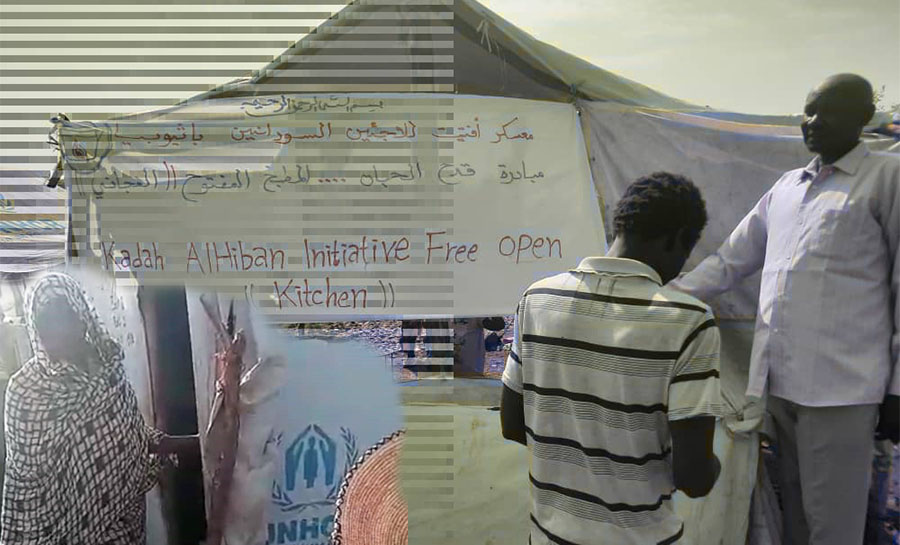
Qadah Al-Habban Empowers 15 Sudanese Refugee Women in Ethiopia
Ethiopia - Moatinoon
"Qadah Al-Habban" Initiative has completed the first phase of its microfinance program, targeting 15 Sudanese refugee women in the Afteit Camp in Ethiopia.
The initiatives head, Abdul Aziz Al-Daqil, told Citizens that the first phase was 100% complete after the last batch of women were given ownership of means of production, enabling them to increase their income instead of relying entirely on humanitarian aid.
Al-Daqil explained, "We have several other goals and programs that we are working to implement step by step, including the project we are currently implementing, which is a microfinance project. We started with the first project, which is financing livelihood projects targeting women to help them become self-reliant in light of the current circumstances we are experiencing."
The initiative presented the project to the Sudan Platform for Agriculture and Food Security, a US-based nonprofit organization founded by Sudanese expatriates, whose efforts support Sudanese farmers and displaced persons affected by the war. The organization was founded by Sudanese living in the United States.
The organization relies entirely on donations from Sudanese living in the United States through ongoing fundraising campaigns.
Al-Sadig Ismail, the organizations official, said that in coordination with the Moatinoon Center, they contacted Abdul Aziz Al-Daqil, head of Qadah Al-Hiban community initiative in the Ethiopian camps. Al-Daqil presented an ambitious vision for helping refugees, with a particular focus on empowering women as the most affected group.
"Qadah Al-Hibban" initiative presented a project to finance 15 refugee women to provide livelihoods and support their families, instead of relying solely on humanitarian aid.
Thanks to a generous donation from the Sudanese community in Augusta, Georgia, the Sudan Agriculture Platform evaluated and decided to finance the microfinance projects presented by the "Qadah Al-Hibban" initiative. In selecting the projects, the platform considered their full alignment with its strategic goals of achieving food security and building the resilience of the most vulnerable groups, especially women.
The project began by funding 15 women in various fields. The project was well-received and welcomed by refugees and Sudanese abroad, particularly in the United States and Europe.
Al-Daqil says, "The first phase of the project has now been completed, with the funding of 15 small projects and their delivery to the women who submitted acceptable proposals." All of this was achieved as a result of the strong and rapid response of Sudanese abroad."

